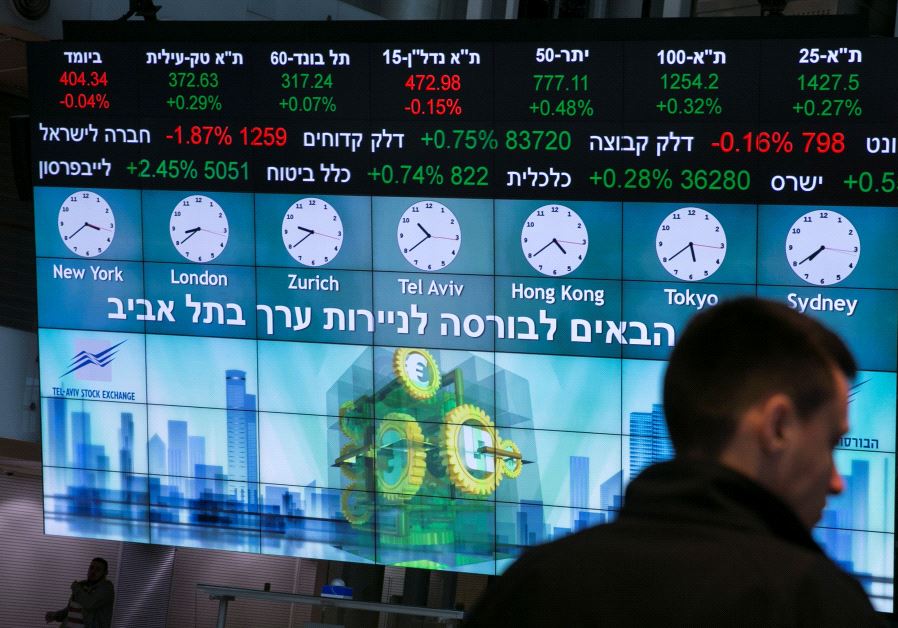Roller coaster markets to continue as coronavirus rattles investors
At times of sharp market fluctuations, global markets tend to move in sync, with the Israeli market particularly impacted by international trends.
 A man stands in front of an electronic board displaying market data at the Tel Aviv Stock Exchange
A man stands in front of an electronic board displaying market data at the Tel Aviv Stock Exchange